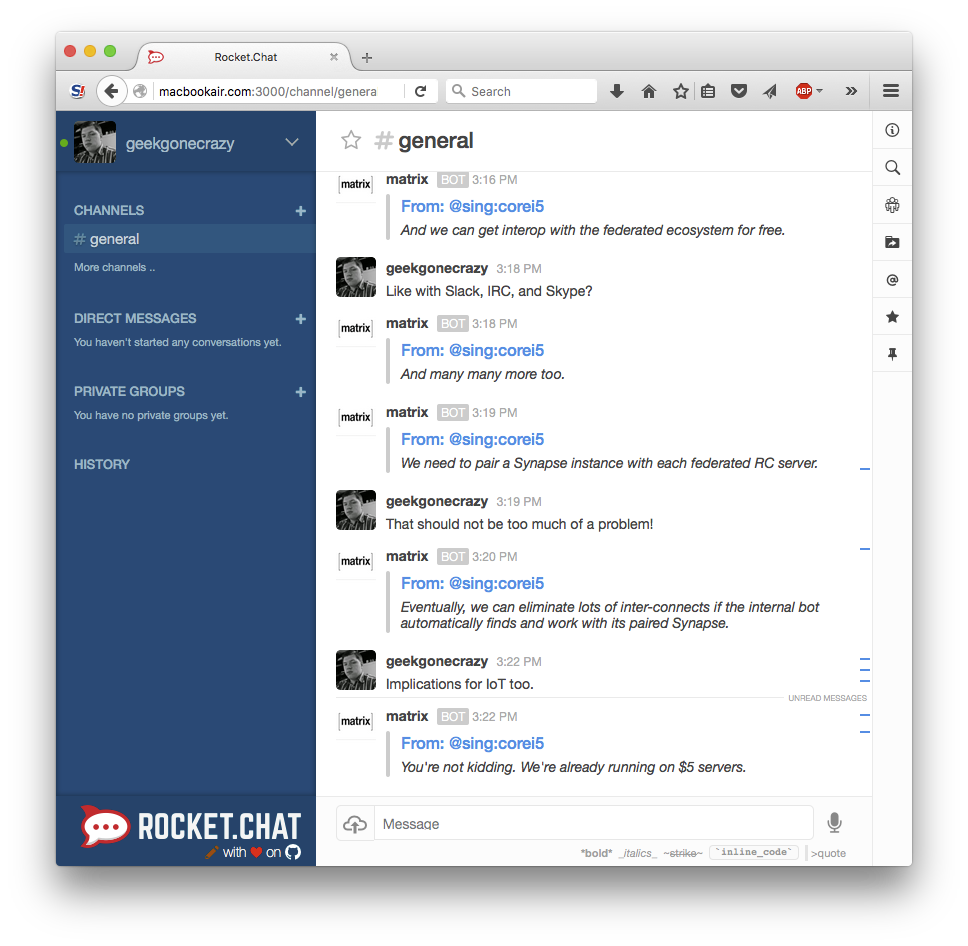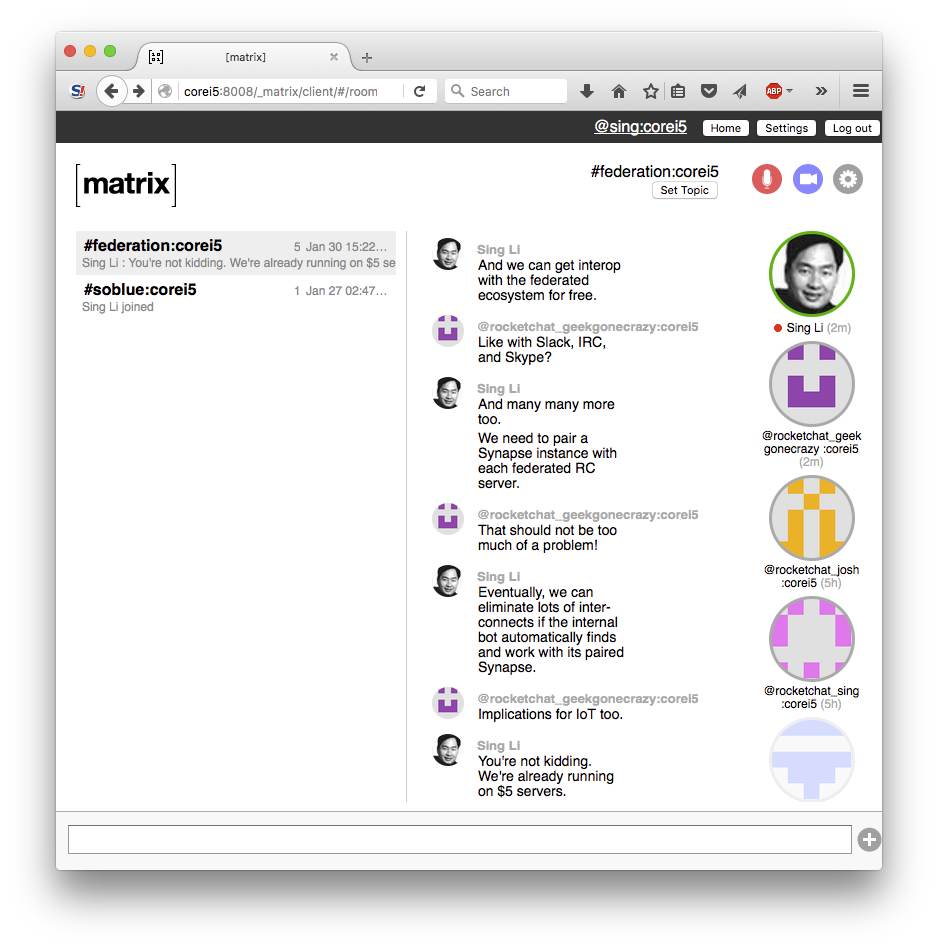
Security News
Deno 2.2 Improves Dependency Management and Expands Node.js Compatibility
Deno 2.2 enhances Node.js compatibility, improves dependency management, adds OpenTelemetry support, and expands linting and task automation for developers.
hubot-freddie
Advanced tools
Freddie is Rocket.Chat's Hubot for Federation via matrix.org
Freddie pairs a Rocket.Chat server with a Synapse Home Server.
From Rocket.Chat:

To Home Server:

Out to the rest of the federated world - Slack, IRC, and beyond ... via matrix.org
NOTE: This project is a work in progress.
npm install --save hubot-freddie
Next, you must edit the external-scripts.json file to load Freddie:
[
...
"hubot-freddie"
]
In the node_modules/hubot-freddie directory:
npm install
node genASRegFile.js -r -u <URL of hubot-freddie's incoming webhook>
This will generate a rocketchat-registration.yaml file in the same directory.
Copy this file to both your Rocket.Chat server and Synapse Home Server. Note the absolute path(s).
On your home server, make sure to add an entry in homeserver.yaml to point to this file:
app_service_config_files: ["/absolute/path/to/rocketchat-registration.yaml"]
You will also need to configure Freddie for your Rocket.Chat server and Synapse Home sever..
#Configuration
You can configure Freddie via environment variables.
Here are all of the options you can specify to configure hubot-freddie.
Note that these options are in addition to the options available with the hubot-rocketchat adpaters. Please see hubot-rocketchat adapter configuration options for more information.
Configure via: export VAR=Value or add to pm2 etc
| Environment Variable | Description |
|---|---|
| HOMESERVER_URL | the URL where your Home Server is running, as seen by the bot, specify as http://host:port with no trailing slash |
| HOMESERVER_DOMAIN | the domain of the Home Server |
| HOMESERVER_ROOM_ID | the id of the federated room on the Home Server; note this must be the ID and not the textual name of the room |
| ROCKETCHAT_ROOM_ID | the id of the federated room on the Rocket.Chat Server; note this must be the ID and not the textual name of the room |
| HOMESERVER_SENDER_LOCAL | the local user on the Home Server that will create new users and send messages on behalf of incoming Rocket.Chat messages |
| INCOMING_PORT | the port at which this bot will listen to incoming messages from the Home Server |
| ROCKETCHAT_USER_PREFIX | the prefix added to the Rocket.Chat user name when messages are sent on his/her behalf to the Home Server |
| WRITABLE_CONFIG_PATH | the absolute path of the directory where the bot's Matrix bridge can find the rocketchat-registration.yaml Application Service configuration file, this file must be identical to the one registered with the Home Server |
FAQs
Rocket.Chat's Hubot for Federation with matrix.org
The npm package hubot-freddie receives a total of 1 weekly downloads. As such, hubot-freddie popularity was classified as not popular.
We found that hubot-freddie demonstrated a not healthy version release cadence and project activity because the last version was released a year ago. It has 11 open source maintainers collaborating on the project.
Did you know?

Socket for GitHub automatically highlights issues in each pull request and monitors the health of all your open source dependencies. Discover the contents of your packages and block harmful activity before you install or update your dependencies.

Security News
Deno 2.2 enhances Node.js compatibility, improves dependency management, adds OpenTelemetry support, and expands linting and task automation for developers.

Security News
React's CRA deprecation announcement sparked community criticism over framework recommendations, leading to quick updates acknowledging build tools like Vite as valid alternatives.

Security News
Ransomware payment rates hit an all-time low in 2024 as law enforcement crackdowns, stronger defenses, and shifting policies make attacks riskier and less profitable.